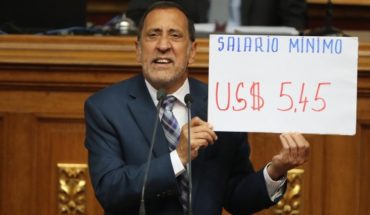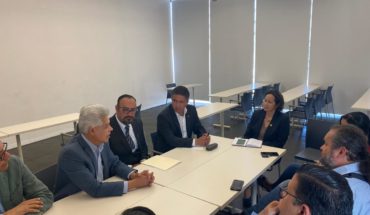CMPC makes unreleased self-criticism about the role of entrepreneur. In addition, an X-ray to argentina’s pension crisis; Julio Ponce (SQM) again forced to open his wallet to appease Wall Street for funding politicians in Chile; the investor who transformed $27 million into $2.6 billion in a month thanks to the Covid-19; and three questions to the Director of Moody’s Analytics about the constituent process in Chile.
Good! Another week confirming institutional collapse. The second withdrawal of 10% of AFPs is almost a fact. One fact to ponder: the policy that is marking the country’s agenda is Pamela Jiles.
Something to highlight of the week. The speech of Luis Felipe Gacitúa, in the Enagro, is worth emphasizing. The president of CMPC, the main asset of the Matte Group, made a deep mea culpa about the role of the entrepreneur in Chile and was forceful about the Araucanía crisis:
“If I didn’t have the role I have at CMPC today, I’d probably think like I thought five years ago, with a radically different look at the Mapuche world than I have today. I believe that Chilean society has a debt to the Mapuche world that has essentially to do with a very central thing, which is its dignity. Chilean society has a debt to the Mapuche people, which has to do, essentially, with their dignity.”
“We have made a very serious mistake in the past, which is that we do not tell the things we do, because we had the position of trying to go unnoticed. Today in the world companies cannot go unnoticed.”
Before starting with what summons us, if someone shared this newsletter or note to you, be sure to receive it every Sunday night, signing up for El Semanal HERE. And if you’re already enrolled, you can share it with a friend, family member, or colleague.
1
1-CENTRAL BANK, GOLDMAN SACHS AND FITCH AGREE: CHILE FACES COMPLEX SCENARIO
The view of the Central Bank. In its Financial Stability Report, it states that an extension of the economic impact of the pandemic is the greatest risk facing the financial system. It warns that the Treasury’s scope for action has been reduced, as there is less room to continue to be indebted and the issuing body itself could run out of ammunition to react and maintain financial stability. That could turn liquidity problems into solvency complications.
Mario Marcel also scored for the second retirement of 10% of AFPs. “It reduces savings, the amount of future pensions and generates more tax obligations.” The president of the Central Bank said that these long-term effects “are not minor from the point of view of macroeconomics and financial stability. A reduction in the savings rate means we will have fewer household resources to finance the investment.”
What Goldman Sachs warns. A year is coming that will be no stranger to the political and electoral fabric. It warns that the new Constituent Assembly will have an impact on investment until domestic economic operators and foreign investors have more clarity in the direction of politics.
What Fitch is looking at. The risk sorting agency warns of a complex and challenging scenario. They agree with Goldman that the downward trend in corporate investment will deepen.
And on the constituent debate: “On October 25, 2020, Chilean voters approved a referendum to draft a new Constitution. Although expected, the result injected another layer of uncertainty into an economy that was already affected by the coronavirus pandemic and the fourth quarter 2019 social crisis.
2
2- IN GOVERNMENT BEGINS TO WORRY ABOUT CASINO ANGER WITH ENJOY LAW
The phrase is from a senior executive of one of the largest casino operators in Chile. He said it in the context of a virtual conference in which major investor groups, including South African group Sun International, Canadian Clairvest, Spaniard Peralada and Argentine Boldt, made public their annoyance with the government.
The darts that point to The Currency. This week the operators took off their gloves and openly accused Sebastian Piñera’s government and regulators of privileging Enjoy. They threatened to sue the country in the World Bank arbitration court for a violation of the rules set on their investments.
The gota that filled the glass. It was Thursday’s announcement that casinos will be able to reopen their doors to run on slot machines. They must be in a commune in Phase 3 Preparation, or Phase 4 of Initial Opening. The annoyance is that only Enjoy knew of this reopening and protocols.
The regulator gets nervous. The superintendent denies any privilege, but sources of the Ministry of Finance and the casino super itself recognize pressures from La Moneda and things have been done wrong. Even Enjoy’s creditors are upset and asking for explanations.
The market and industry have been suspicious of The Currency’s hand in wanting to privilege Enjoy for weeks. As we reported in El Semanal last week, they point to their relationship with the Martinezs, the businesses that the Piñera family has done with Enjoy and the role of the Penta, who now took 11% of Enjoy. Also to the relationship between Enjoy and Sebastián Piñera Jr., who through BP Capital did business with the company when he took the participation of a real estate company and supported it with debts.
The trust. It is the most complex edge and is the one that can end up proving that the President has financial interests in Enjoy. Sebastian Piñera’s blind trust is US$ 1.170 million and was distributed to three administrators: Moneda, BTG Pactual and Altis. The first two have large investments and interest in Enjoy. Currency has $110 million of the international bond and is subscribing fresh silver for about $12 million in new bond convertible into Enjoy shares.
3
3- AN X-RAY TO ARGENTINA’S CRISIS
Retirement reform. Not only in Chile is the system questioned, but unlike the Chilean, the Argentine not only generates low pensions but the state has a hard time paying for them since it is broken (two months ago it came out of its ninth default. This week Alberto Fernandez’s government announced its pension reform plan and controversy broke out again. It happens less than 3 years after the controversial reform of Macri that Fernández paused shortly after taking over.
The Government’s proposal takes inflation and increases in pensions out of the equation will be linked to wage increases and tax collection. The big problem is that there are more than 4 million Argentinians who never contributed. In total, of the 8.8 million retirees and pensioners, only 3 million people access the benefit meeting all the age and contribution years requirements set by law.
Pensions and retirements are more than half the budget. This year, spending for pensions and pensions will be 53.45%. The current minimum retirement is about US$ 200 and the maximum US$ 1,100 (approx). 50% charge the minimum and only 20% receive more than $300 per month.
Neither Macrismo nor Kirchnerismo, a chronic problem in Argentina. INDEC (official body, equivalent to the INE) reported that in the first half of 2020 poverty reached 40.9%. Argentina’s poverty figure reflects a structural problem: in the last 30 years poverty has never been able to puncture the 25% floor. Failure is more dramatic in contrast to the experiences of the rest of the world and the region. While income poverty in Argentina is similar to that of 25 years ago, in the developing world it has fallen by 25% and in Latin America the fall is around 45%.
In the first six months of the year it increased from 0.434 to 0.451. This drop in income distribution occurred in a twelve-month period when inflation was 42.8%, the Wage Index increased 36.4%, and economic activity fell 19.1%. (Official figures of INDEC)
Minimum salary. In Argentina, the law defines it as: “the lowest remuneration to be received in cash by the worker without family burdens, in his legal working day, so as to ensure adequate food, decent housing, education, clothing, healthcare, transportation and recreation, vacation and foresight”. It currently equates to about US$217 to the official dollar exchange in August 2020.
4
–SQM again opens the wallet to appease Wall Street. Illegally financing politicians in Chile will cost the company that still indirectly controls Julio Ponce, US$100 million to SQM. During the week the company reached an agreement in which it agreed to pay US$62.5 million to an English pension fund to end a lawsuit. The English pension fund Tyne and Wear Pension Fund accused the miner of making false statements and not informing its investors of illegal payments to politicians.
It should be remembered that a few years ago SQM had agreed to pay more than US$30 million in fines in the US. It was part of the agreement cregulators and justice in that country. In Chile, fines were less than 3 billion pesos. And in the Cascadas case to Julio Ponce, two weeks ago, the CMF’s fine was lowered from $65 million to $3 million. And so we are.
–The noise that makes in the market the purchase of CGE by the Chinese state State Grid. The $3 billion operation means the Chinese state’s entry into a strategic business with geopolitical implications. They warn that the FNE should investigate and emphasize that the Chinese state is by definition a monopoly.
–Claudio Raddatz debuted as a full professor at the FEN of the University of Chile. The economist spent three years in Washington as Head of the Global Financial Stability Analysis Division in the IMF’s Department of Monetary and Capital Markets. Previously he was Director of Financial Policy (2014-2017) and Economic Research Manager (2011-2014) at the Central Bank of Chile.
“Bill Ackman, the U.S. manager who earned $2.6 billion between February and March with a $27 million investment thanks to the Covid-19, repeats the bet. Last week the controller of the Pershing Capital Square Market fund again bet against the creditworthiness of different companies.
5
5-THREE QUESTIONS TO ALFREDO COUTIÑO
Moody’s Analytics’ Latin America director has been analyzing and writing about Chile for years. In this brief interview, the economist says that volatility must be used to staying in chile’s economy, is optimistic about the constituent process, and suggests changes to the Central Bank’s mandate.
–How concerned we should be about the political risks of constitutional debate and elections in Chile next year.
–Markets have calmly reacted to the plebiscite and expect the debate to be carried away by legal channels and civility, although they remain in expectations and in the hope that a general consensus will be reached on the new magna letter. The debate is going to have its highs and lows and it’s going to be full of heat, which is going to move markets in one direction and another. Elections are going through the period of discussion, so there is a risk of protests and violence in the streets. In the end, the country will decide its new president, who will be in charge of enacting the new magna carta.
–Chile has been in a macro order for 30 years based on a strict fiscal rule and an independent central bank, now that could be in question. Are there alternatives?
–The fiscal rule has existed, but with periods in which it has been strictly complied with, but also with periods in which it has relaxed, especially in times of crisis. The country has an independent central bank with monetary or objective mandate (price stability), but the same has acted in periods where a dual mandate (inflation and growth) applies.
In this sense, given the tradition of social protests, an alternative would be to adopt a dual-mandated monetary policy, where monetary instruments are calibrated to achieve minimum inflation with maximum growth, which would allow the country to grow with stability and preserve social welfare. Monetary independence would not be at risk as long as it is accompanied by structural fiscal discipline that also rises to constitutional mandate.
“Some economic truths left bare by the pandemic for the region
“What the pandemic showed is that the region was caught off guard, as it lacks public health systems without preparation or equipment to respond to health emergencies. The lesson also is that Latin American governments should not underestimate the lethality power of health events such as epidemics and pandemics and act quickly to stop their acceleration and keep them under control.
–Bonus track: the pandemic once again discusses the legitimacy of capitalism, where does it stop at that debate?
–Free-market capitalism has shown a better functioning than other systems, but on the way it has neglected social welfare, so it is needed that this model be accompanied by public policies with greater social content. It is in this area that the modernization of institutions whose policies focus on achieving their ultimate purpose fits: the preservation and improvement of social welfare, where governments and central banks focus on policies with dual objectives: growth and stability to achieve maximum social welfare.
6
6-CHART OF THE WEEK
A TOP TEN TO FLY. I’m not sure if we have to be very proud, but in the world ranking of major marijuana users, Chile is stubbornRo. According to figures posted on Yachay Data’s Instagram account, 15.1% of adults say they’ve consumed it over the past year. And that’s even though growing for recreational purposes is not legal.
7
7-DIALOGUES OF THE COUNTER
Bettina Horst and economic institutionality in the new Constitution: “It must not be trench. It must be a court scratch that marks the limits of power.”
The Director of Public Policies of Freedom and Development, and José De Gregorio, dean of the Faculty of Economics and Business of the U. of Chile, former minister and former president of the Central Bank, were the protagonists of the last chapter of Diálogos de El Mostrador. They talked about the tax rule, the independence of the issuing body and the right to property. De Gregorio said chile is experiencing a deep crisis and needs a new social pact.
8
8-RECOMMENDATIONS
Billions widowers featured “Industry,” HBO’s new hit that gets into the world of finance through centennial and millennial characters. Set in Pierpoint & Co., a fictional elite investment bank, the show chronicles what happens to a group of newly hired youth as they compete for some permanent positions at the firm. The stage is London and it touches on issues of ethics, values, sexism and racism.
-AGENDA
Constitutional debate at the CEP. It will be Thursday and take the Irish experience as an example. Over the past decade, Ireland has organized a Constitutional Convention (2012-14) and Citizens’ Assemblies (since 2016) to explore and propose constitutional change on the main social issues. It turned out to be a highly valued form of participation among Irish citizens and could be an example for Chile.
The participants. Two references that have been part of this process: Art O’Leary, current Secretary General of the President and Dr. Jane Suiter, researcher and founder of the pilot project “We the Citizens” (Ireland’s first deliberative experiment).
Statistics
Monday
-Weekly Joint Indicators.
Wednesday
-National Accounts, GDP, Chilean Balance of Payments and International Investment Position in the third quarter of 2020.
If you have any comments or information to share with us, write to ivan@elmostrador.cl or follow me on Twitter @ivanwese and Instagram @ivanwese. Sign up for El Semanal HERE.





